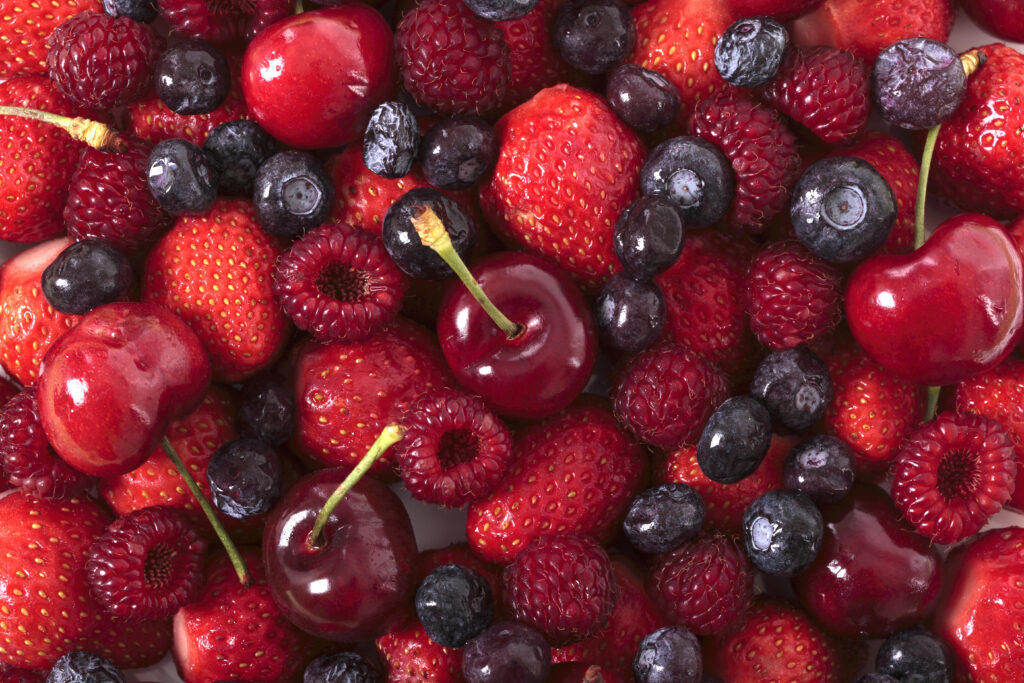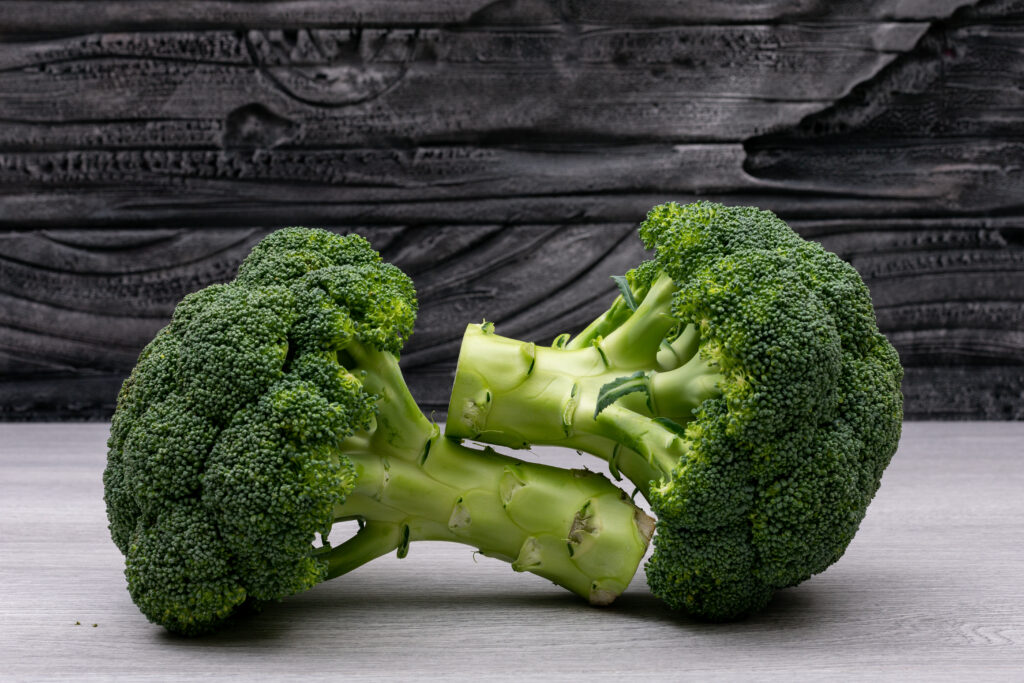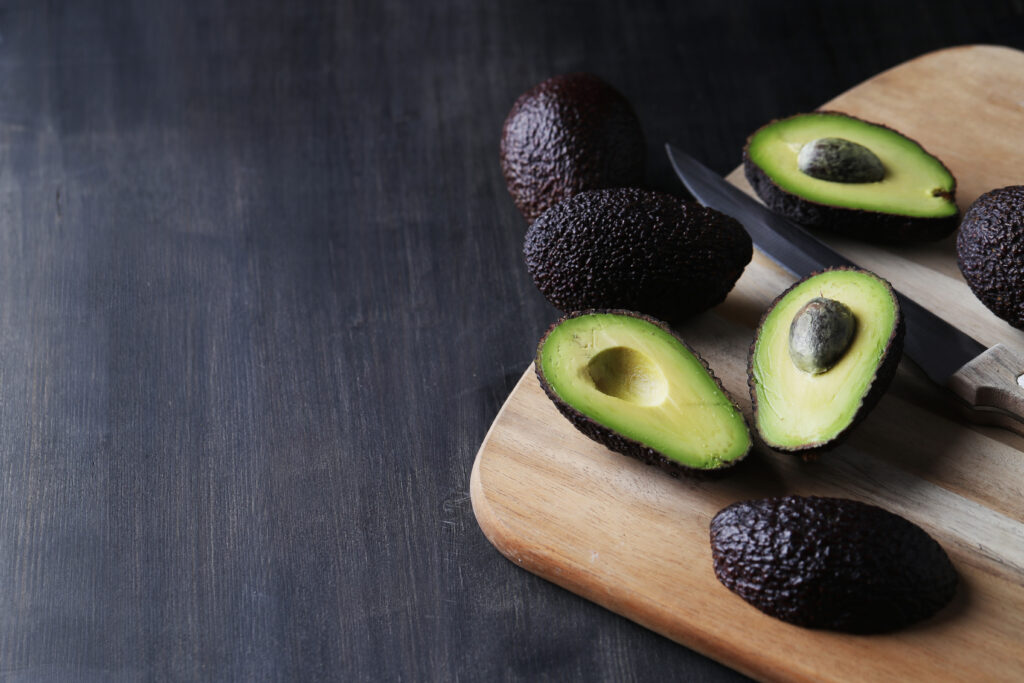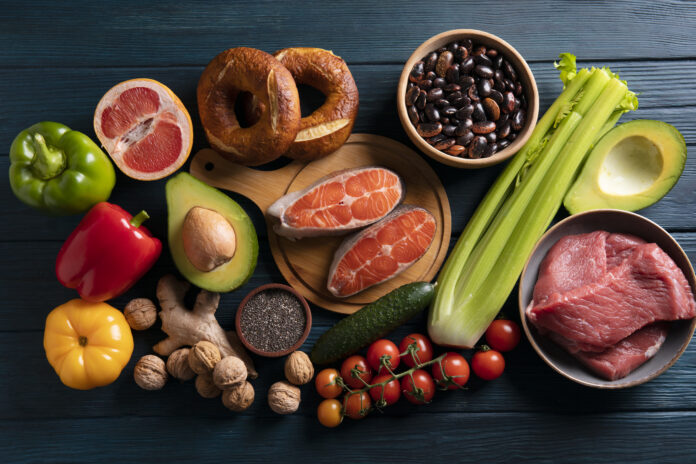Do you know your food performs the role of medication in several cases? Many food items can help decrease the risk of chronic and infectious diseases. However, to reap such benefits from your diet, foods or meals, you must know about the nutrients that may help decrease the risk of various diseases. Studies show that fresh fruits, vegetables, spices, olive oil, fish, and berries are anti-inflammatory foods that lower the risk of chronic inflammation and infections through any injury.
Where chronic inflammation is a disease that leads to low activity levels, depression, and stress. Some foods tend to increase such problems. Therefore, nutritionists and healthcare professionals suggest eating foods that can help reduce inflammation, known as anti-inflammatory foods.
What is Inflammation in Your Body?
You can experience signs of inflammation in your body whenever you have a bruised toe, have a bad throat, or cut your finger. The common signs of inflammation can include pain, heat, swelling, and redness around the injured or bruised area. Inflammation can be defined as your body’s natural response to infection, injury, or illness that can generally resolve its own.
Inflammation can be defined as your body’s natural response to infection, injury, or illness that can generally resolve its own.
According to recent research, there is another kind of inflammation called systemic inflammation. It is a chronic inflammation that can last for several months or even years. Chronic inflammation can cause various serious diseases in your body including:
- Alzheimer’s disease.
- Arthritis.
- Some types of cancer.
- Inflammatory bowel disease.
- Heart diseases.
- Prediabetes.
- Type 2 diabetes.
- Obesity.
- Metabolic syndrome.
Effects of Cooking Methods on Foods Baking, steaming, or stir-frying the food can reduce the inflammatory properties of food. Avoid grilling or deep frying. Because grilling meat creates cancer-causing compounds in meat. Fat dripping from meat to grill releases such compounds, which end up in the food on your plate. But this is not the same for low-fat fish or vegetables. These are safe on the grill.
Baking, steaming, or stir-frying the food can reduce the inflammatory properties of food. Avoid grilling or deep frying. Because grilling meat creates cancer-causing compounds in meat. Fat dripping from meat to grill releases such compounds, which end up in the food on your plate. But this is not the same for low-fat fish or vegetables. These are safe on the grill.
Microwaving the food can cook and heat out by activating water molecules and it is healthier than grilling or frying at high heat or flame.
Top Anti-Inflammatory Foods
Foods containing anti-inflammatory compounds can help reduce inflammation. These anti-inflammatory compounds are found in:
- Broccoli.
- Berries.
- Cherries.
- Tomatoes
- Cocoa and dark chocolate.
- Olive oil.
- Grapes.
- Mushrooms.
- Peppers.
- Avocados.
- Turmeric.
- Fatty fish.
Berries These are small fruits rich in minerals, vitamins, and fiber. It has dozens of varieties based on color, taste, and region of cultivation. Various types of berries include:
These are small fruits rich in minerals, vitamins, and fiber. It has dozens of varieties based on color, taste, and region of cultivation. Various types of berries include:
- Strawberries.
- Blackberries.
- Blueberries.
- Raspberries.
Anthocyanins are antioxidant compounds, found in berries, making them one of the perfect anti-inflammatory foods. These antioxidants tend to reduce your inflammation risks. According to a 2019 study, another photo-chemical compound, found in berries, is an effective component of your diet that can help delay cancer development and its progression. Research also suggests that berries support immunotherapy as your body naturally produces NK cells by eating berries. Thus berries help your immune system function correctly.
People with excess weight should eat berries because they help lower levels of specific inflammatory markers associated with heart disease.
Fatty Fish
These are rich in docosahexaenoic acid (DHA), eicosapentaenoic acid (EPA), omega-3 fatty acids, and protein. Among all these nutrients omega-3 is the most beneficial compound that works as an anti-inflammatory food. Kinds of fatty fish containing anti-inflammatory foods include:
- Salmon.
- Anchovies.
- Herring.
- Mackerel.
- Sardines.
Other anti-inflammatory compounds including DHA and EPA also help reduce inflammation that may lead to underlying health conditions such as:
- Kidney diseases.
- Diabetes.
- Heart diseases.
- Metabolic syndrome.
The fatty acids found in fatty fish are converted into special compounds called resolvins and proteins through metabolism in your body. Both compounds have anti-inflammatory effects.
Research suggests that consuming enough salmon or any fatty fish rich in DHA and EPA compounds can reduce the number of inflammatory marker C-reactive protein (CRP).
However, another research has proved that adults with an irregular heartbeat who are taking DHA and EPA as supplements daily, experience no difference in inflammatory markers compared with those who receive a placebo.
Broccoli This is a highly nutritious cruciferous vegetable resembling Kale, Brussels sprouts, and Cauliflower. You can incorporate cruciferous vegetables in your diet to decrease the risks of heart disease and cancer.
This is a highly nutritious cruciferous vegetable resembling Kale, Brussels sprouts, and Cauliflower. You can incorporate cruciferous vegetables in your diet to decrease the risks of heart disease and cancer.
Research suggests that these vegetables also have anti-inflammatory effects due to the antioxidant compounds found in them. Among all these cruciferous vegetables, broccoli is enriched with sulforaphane, an antioxidant that helps decrease inflammation by reducing levels of cytokines and nuclear factor kappa B(NF-kB) in your body, which are actually molecules that trigger inflammation in your body.
Avocados They contain nutritious compounds including tocopherols and carotenoids that help reduce risks of heart diseases and cancer as well. Avocados are rich in fiber, potassium, and magnesium along with heart-healthy monounsaturated fats.
They contain nutritious compounds including tocopherols and carotenoids that help reduce risks of heart diseases and cancer as well. Avocados are rich in fiber, potassium, and magnesium along with heart-healthy monounsaturated fats.
Moreover, avocados contain a special compound that helps reduce inflammation in newly forming skin cells. According to a 2019 study, adults with excess weight used to eat avocados for 10 weeks consistently, and this resulted in an amazing reduction of inflammatory markers interleukin 1 beta (IL-1B) and CRP.
Green Tea
Green tea is found in various types but green tea is one of the healthiest beverages. Drinking green tea daily can help decrease the risk of heart disease, Alzheimer’s disease, obesity, and cancer. It contains beneficial anti-inflammatory and antioxidant compounds, especially a substance known as epigallocatechin-3-gallate (EGCG). This special miraculous component of green tea inhibits inflammation by reducing pro-inflammatory cytokine production and destroys the fatty acids in your body cells.
Peppers
Chili peppers or bell peppers are a great source of antioxidants and vitamin C, both have powerful anti-inflammatory effects.
Another important antioxidant called quercetin is found in bell peppers which can reduce inflammation associated with chronic diseases like diabetes. Chili peppers contain special natural compounds known as ferulic acid and sinapic acid that support healthier aging and bring a great reduction in inflammation.
Mushrooms
Thousands of varieties of mushrooms are found worldwide but among all these, only a few varieties are edible and grown commercially. Edible varieties of mushrooms include shiitake mushrooms, portobello mushrooms, and truffles. These are low in calories but have larger quantities of vitamin B complex, copper, and selenium. These are also rich in antioxidants such as phenols that provide anti-inflammatory protection.
Grapes
This fruit contains anti-inflammatory components called anthocyanins. Moreover, they tend to decrease the risk of several diseases such as eye disorders, Alzheimer’s disease, arthritis, obesity, diabetes, and heart disease.
Grapes are rich in a special type of antioxidant, resveratrol, linked with many health benefits. This compound protects your heart from inflammation.
In one study, 100 adults are included with heart failure. And examined the effects of taking resveratrol supplements and eating grapes on their heart health. The results showed that those who consumed three 50 mg capsules of resveratrol supplement daily for 2 months experienced a great decrease in inflammatory gene makers including interleukin-6 (IL-56). An older study from 2009 found that eating grape extract daily can increase adiponectin levels in your body. Its higher levels support your weight management and help in weight loss with decreased risk of cancer.
Turmeric
This is a common spice having an earthy and warm flavor, used in Indian dishes and carried all over the world. It is the center of attention for nutritionists, nowadays, because it has a miraculous powerful anti-inflammatory compound called curcumin. Research has supported the theory that turmeric is beneficial for patients with diabetes and arthritis as it is the best anti-inflammatory food.
According to a study, if you have metabolic syndrome, consuming 2 grams of curcumin daily along with Black pepper’s special compound piperine will save your body from inflammation. These compounds help in reducing production of inflammatory markers CRP in your body cells.
But sometimes it is difficult to get enough curcumin from turmeric alone to have a noticeable improvement. Then taking curcumin supplements may be more effective. Such supplements contain piperine, which helps you by boosting curcumin absorption at higher levels.
However, more research is needed to understand how much quantity of turmeric is enough to stop the production of inflammatory markers in your body.
Olive Oil
This is the most healthy form of fat you can eat daily. Extra virgin olive oil is the monounsaturated form of fats and is used as a staple food in the Mediterranean diet. Its health benefits are amazing and have a wide range. According to studies, this oil tends to reduce the risk of serious health conditions such as brain cancer, heart disease, and obesity. In addition, researchers suggest that eating a Mediterranean diet along with supplements of extra virgin olive oil can support your body cells in decreasing the number of inflammatory markers.
Olive oil also contains an antioxidant compound called oleocanthal which works like anti-inflammatory drugs such as ibuprofen.
Therefore, healthcare professionals and dietitians consider olive oil as one of the most effective anti-inflammatory foods.
Cocoa and Dark Chocolate This is a flavorful, delicious, and rich edible that is packed with antioxidants that help reduce inflammation. Cocoa and dark chocolate also have special compounds that lead to healthier aging and lower the risks of heart disease. Its main component flavonols are a great source of anti-inflammatory agents which are also responsible for keeping your endothelial cells aligned and assuring good health of your arteries.
This is a flavorful, delicious, and rich edible that is packed with antioxidants that help reduce inflammation. Cocoa and dark chocolate also have special compounds that lead to healthier aging and lower the risks of heart disease. Its main component flavonols are a great source of anti-inflammatory agents which are also responsible for keeping your endothelial cells aligned and assuring good health of your arteries.
A study was done on 50 participants who consumed 800 mg of cocoa flavanols twice daily or placebo. The results showed that cocoa flavanols can improve your vascular health and decrease your blood pressure more efficiently than a placebo. Cocoa flavanols are also effective in reducing arterial stiffness.
However, more authentic studies on chocolates and their components are needed.
In addition, choosing dark chocolate containing at least 80% cocoa, a greater percentage is better for getting the anti-inflammatory benefits of chocolates.
Tomatoes
Tomatoes are known as nutritional powerhouses of nature. Where lycopene is particularly beneficial for minimizing pro-inflammatory compounds related to various types of cancer. You can absorb more lycopene by cooking tomatoes in olive oil. Because lycopene is a carotenoid that can be absorbed easily with a rich source of fat.
Cherries
These are tasty, delicious fruits that have antioxidants like anthocyanins and catechins with decreased inflammation.
According to a study, tart cherries have more health-promoting properties than sweet cherries.
People who consume nearly 15 ounces or 460 ml of tart cherry juices daily for 10 weeks experience significantly lower levels of inflammatory CRP. But here another study has proved that tart cherry juice is not useful for limiting inflammation in healthy young adults. Therefore, more research is required to evaluate the benefits of cherries in reducing inflammation.
Foods Causing Inflammation in Your Body
Limiting your consumption of foods that can promote inflammation will help you fill your diet with nutritious anti-inflammatory ingredients. The use of more anti-inflammatory foods supports your overall health. Consuming more inflammatory foods such as fast foods, processed meat products, and frozen snack items is associated with higher blood levels of inflammatory markers like CRP.  Sugar-sweetened beverages also promote inflammation. More kinds of food that increase the risk of inflammation in your body are:
Sugar-sweetened beverages also promote inflammation. More kinds of food that increase the risk of inflammation in your body are:
- Processed foods such as fast foods and potato chips.
- Refined carbs including biscuits, crackers, white rice, and white bread.
- Fried foods such as mozzarella sticks and fried chicken.
- Sugar-sweetened beverages like sports drinks, sweet tea, and sodas.
- Processed meat including hot dogs, ham, and bacon.
Eating these foods occasionally is OK but try to follow a balanced diet plan that is based on whole foods such as vegetables and fruits. Try to consume goods that are minimally processed.
Conclusion
Anti-inflammatory foods help lower the levels of inflammation on a chronic basis which can lead to some serious diseases.
Strive always to keep inflammation in check by choosing a wide variety of delicious and antioxidant foods. Choose a variety of bright-colored foods that are closer to their original form and help provide more anti-inflammatory nutrients.
Peppers, fatty fish, olive oil, and dark chocolate are some foods that can help you lower inflammation along with reducing your risk of illness.







